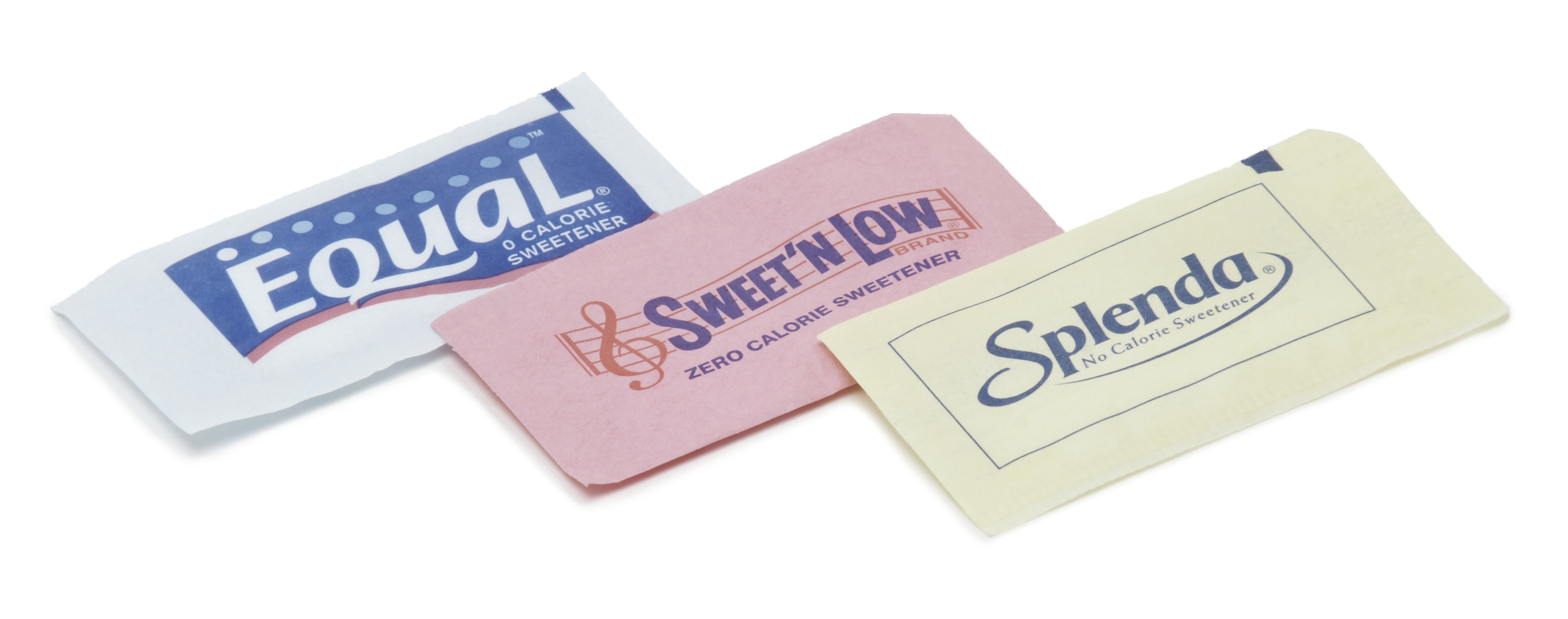
There’s been a debate over whether you can have your cake and eat it too, i.e. whether artificial zero-calorie sweeteners are safe to eat or, in the long-term, are detrimental to health.
A paper published in the journal Nature sheds light on this question. Be warned… the answer isn’t pretty.
The researchers behind this paper began by examining what happened to different groups of mice fed any of three different artificial sweeteners (saccharin, sucralose, and aspartame) as compared to mice fed normal sugars (glucose and sucrose). Worryingly, all of the mice that were fed the artificial sweeteners quickly developed glucose intolerance, a harbinger of diabetes, obesity, and metabolic disease.
The researchers also noted that the artificial sweeteners altered the mice’s gut bacteria. To test to see if the change in the gut bacteria caused the artificial sweetener-induced metabolic disruption, the researchers transplanted the gut bacteria from the mice fed artificial sweeteners to mice that had no gut bacteria. Sure enough, the recipient mice became glucose intolerant as well, proving the change in gut bacteria was mediating the negative health effects of the artificial sweeteners.
But mice are mice and humans are humans. If the story stopped there, maybe we could shrug off the results and play ignorant, enjoying our Splenda in our morning coffee guilt free. Damn scientific rigor…
The researchers next examined whether there was an association between artificial sweetener intake and poor health in humans. Sure enough, a higher intake of artificial sweeteners was associated with a greater weigh-to-hip ratio (a marker for obesity), higher fasting blood sugar, and higher HbA1c (a marker for diabetes). But that’s not all…
To prove the causative effect of the artificial sweeteners in humans, the researchers gave 7 healthy people who did not normally consume artificial sweeteners, foods containing artificial sweeteners for 1 week. In just 1 week, 4 of the 7 people developed glucose intolerance. What’s more, when the microbiomes from these people were transferred into mice without microbiomes, those mice also became glucose intolerant.
In summary, it looks like artificial sweeteners are anything but a free lunch: they evidently have the ability to disrupt the balance of your gut ecosystem, leading to glucose intolerance and metabolic imbalances that pave the way for obesity and chronic disease.
So, while I’m not personally a proponent of sugar, I definitely put honey higher in the hedonistic hierarchy than Splenda or Sweet’n Low.
https://www.nature.com/articles/nature13793
*The views and opinions expressed herein are those of the author and do not necessarily reflect the views of MDLingo.com, its affiliates, or its employees.